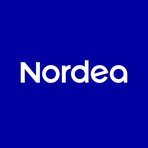Nordea Bank's Strategic Share Buyback: A Closer Look
November 9, 2024, 4:28 pm
Nordea Bank Abp is making waves in the financial world with its recent share buyback initiatives. This move is not just a routine transaction; it’s a strategic play in the chess game of finance. On November 6 and November 8, 2024, the bank executed significant repurchases of its own shares, signaling confidence in its financial health and future prospects.
The first buyback on November 6 saw Nordea acquire 277,571 shares at an average price of €10.90 per share, totaling approximately €3.03 million. Just two days later, on November 8, the bank continued its aggressive strategy, purchasing 280,519 shares at an average price of €10.79, again totaling around €3.03 million. These transactions reflect a calculated approach to enhance shareholder value and optimize capital.
Why is this important? Share buybacks are like a company saying, “We believe in ourselves.” When a firm repurchases its shares, it reduces the number of shares available on the market. This can lead to an increase in earnings per share (EPS), a key metric that investors watch closely. A higher EPS often translates to a higher stock price, benefiting existing shareholders.
Nordea’s buyback program is not a spontaneous decision. It follows an announcement made on October 17, 2024, where the bank revealed a plan to repurchase shares worth up to €250 million. This move was authorized by the bank’s Annual General Meeting, showcasing a clear mandate from its shareholders. The buyback is executed in compliance with European regulations, ensuring transparency and fairness in the process.
As of the latest transactions, Nordea holds a total of 4,154,082 treasury shares for capital optimization and an additional 3,513,966 shares earmarked for remuneration purposes. This dual strategy indicates a balanced approach: rewarding shareholders while also preparing for future investments or employee incentives.
The timing of these buybacks is also noteworthy. In a market often characterized by volatility, Nordea’s actions suggest a belief in stability and growth. The bank’s management is likely betting on a favorable market environment and a robust economic outlook. By investing in its own shares, Nordea is signaling to the market that it sees value in its stock, which can instill confidence among investors.
Moreover, the choice of trading venues for these transactions—XHEL, XSTO, and XCSE—highlights Nordea’s commitment to maintaining a diverse and accessible trading environment. Each venue plays a role in ensuring liquidity and transparency, which are crucial for investor trust.
In the broader context, share buybacks have become a common strategy among corporations looking to enhance shareholder value. However, they can also be controversial. Critics argue that companies should invest in growth opportunities rather than buying back shares. They contend that this practice can lead to short-term gains at the expense of long-term growth. Yet, in Nordea’s case, the buyback appears to be part of a larger strategy to strengthen its capital position while also rewarding shareholders.
Investors often view share buybacks as a positive signal. It suggests that the company has excess cash and is confident in its future earnings. For Nordea, this could mean a commitment to maintaining a strong balance sheet while also providing returns to its shareholders. The bank’s actions may encourage other firms in the sector to consider similar strategies, potentially leading to a wave of buybacks across the industry.
The impact of these buybacks on Nordea’s stock price will be closely monitored. If the market responds positively, it could set a precedent for future buyback programs. Conversely, if the stock price does not react as expected, it may raise questions about the effectiveness of such strategies.
In conclusion, Nordea Bank’s recent share buyback initiatives are more than just financial maneuvers; they are a statement of confidence. By repurchasing shares, the bank is not only enhancing shareholder value but also positioning itself as a strong player in the financial landscape. As the market watches closely, the outcomes of these transactions will likely influence investor sentiment and potentially shape the future of Nordea’s stock performance. In the game of finance, every move counts, and Nordea is making its moves with precision and purpose.
The first buyback on November 6 saw Nordea acquire 277,571 shares at an average price of €10.90 per share, totaling approximately €3.03 million. Just two days later, on November 8, the bank continued its aggressive strategy, purchasing 280,519 shares at an average price of €10.79, again totaling around €3.03 million. These transactions reflect a calculated approach to enhance shareholder value and optimize capital.
Why is this important? Share buybacks are like a company saying, “We believe in ourselves.” When a firm repurchases its shares, it reduces the number of shares available on the market. This can lead to an increase in earnings per share (EPS), a key metric that investors watch closely. A higher EPS often translates to a higher stock price, benefiting existing shareholders.
Nordea’s buyback program is not a spontaneous decision. It follows an announcement made on October 17, 2024, where the bank revealed a plan to repurchase shares worth up to €250 million. This move was authorized by the bank’s Annual General Meeting, showcasing a clear mandate from its shareholders. The buyback is executed in compliance with European regulations, ensuring transparency and fairness in the process.
As of the latest transactions, Nordea holds a total of 4,154,082 treasury shares for capital optimization and an additional 3,513,966 shares earmarked for remuneration purposes. This dual strategy indicates a balanced approach: rewarding shareholders while also preparing for future investments or employee incentives.
The timing of these buybacks is also noteworthy. In a market often characterized by volatility, Nordea’s actions suggest a belief in stability and growth. The bank’s management is likely betting on a favorable market environment and a robust economic outlook. By investing in its own shares, Nordea is signaling to the market that it sees value in its stock, which can instill confidence among investors.
Moreover, the choice of trading venues for these transactions—XHEL, XSTO, and XCSE—highlights Nordea’s commitment to maintaining a diverse and accessible trading environment. Each venue plays a role in ensuring liquidity and transparency, which are crucial for investor trust.
In the broader context, share buybacks have become a common strategy among corporations looking to enhance shareholder value. However, they can also be controversial. Critics argue that companies should invest in growth opportunities rather than buying back shares. They contend that this practice can lead to short-term gains at the expense of long-term growth. Yet, in Nordea’s case, the buyback appears to be part of a larger strategy to strengthen its capital position while also rewarding shareholders.
Investors often view share buybacks as a positive signal. It suggests that the company has excess cash and is confident in its future earnings. For Nordea, this could mean a commitment to maintaining a strong balance sheet while also providing returns to its shareholders. The bank’s actions may encourage other firms in the sector to consider similar strategies, potentially leading to a wave of buybacks across the industry.
The impact of these buybacks on Nordea’s stock price will be closely monitored. If the market responds positively, it could set a precedent for future buyback programs. Conversely, if the stock price does not react as expected, it may raise questions about the effectiveness of such strategies.
In conclusion, Nordea Bank’s recent share buyback initiatives are more than just financial maneuvers; they are a statement of confidence. By repurchasing shares, the bank is not only enhancing shareholder value but also positioning itself as a strong player in the financial landscape. As the market watches closely, the outcomes of these transactions will likely influence investor sentiment and potentially shape the future of Nordea’s stock performance. In the game of finance, every move counts, and Nordea is making its moves with precision and purpose.

